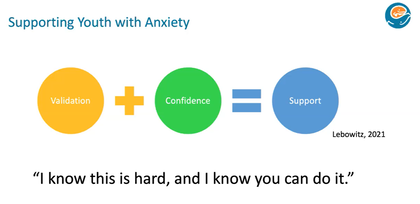 On Wednesday, November 17th we had the opportunity to hear a presentation from Kendra Read, Ph.D. titled "Identifying and Addressing Youth Anxiety". Anxiety is one of the most common mental health concerns youth face. While it is a normal emotional experience, it can grow to become incredibly distressing and interfering, particularly during a global pandemic. When anxiety is present, caregivers (parents, educators, family members) have an important role in helping youth identify anxiety and encouraging and reinforcing brave vs. anxious behavior. In the video below, Kendra Read, Ph.D., a clinical psychologist and assistant professor in the UW School of Medicine’s Department of Psychiatry and Behavioral Sciences, discusses how to identify, understand, and begin to intervene in cases of problematic anxiety. We want to thank Dr. Read for the informational and engaging presentation. If you missed it or want to listen again, we have made a recording of this presentation available, which can be viewed by clicking the image below. Please note, this recording does not include the live Q&A portion. BIO: Kendra Read, Ph.D. is a clinical psychologist, the Director of the Mood & Anxiety Program and Director of Anxiety Programs at Seattle Children’s. She received her PhD in clinical psychology from Temple University in Philadelphia, PA under the mentorship of Philip Kendall, Ph.D., and completed her postdoctoral fellowship at the Stanford University School of Medicine in the Psychiatry and Behavioral Sciences Department. Dr. Read specializes in the treatment of youth with anxiety disorders and OCD from a cognitive behavioral therapy perspective. Her research interests include understanding factors that contribute to treatment outcome, and the dissemination and implementation of CBT for anxiety disorders. This event is brought to you by the Northshore Council Mental Health Committee. For questions, please email mentalhealth@northshorecouncilptsa.org Council invites you to join our upcoming FREE Parent Education event: Identifying and Addressing Youth Anxiety
Date: Wednesday, November 17th Time: 1:00PM Presenter: Kendra Read, PHD Registration: https://us06web.zoom.us/meeting/register/tZMof-qsrj4sEtAo99u6WIpQ_dOQG5MqDX98 Zoom link will be emailed to those who have registered prior to the event. Anxiety is one of the most common mental health concerns youth face. While it is a normal emotional experience, it can grow to become incredibly distressing and interfering, particularly during a global pandemic. When anxiety is present, caregivers (parents, educators, family members) have an important role in helping youth identify anxiety, and encouraging and reinforcing brave vs. anxious behavior. Kendra Read, PhD, a clinical psychologist and assistant professor in the UW School of Medicine’s Department of Psychiatry and Behavioral Sciences, will discuss how to identify, understand and begin to intervene in cases of problematic anxiety for the youth in your lives. BIO: Kendra Read, PhD is a clinical psychologist, the Director of the Mood & Anxiety Program and Director of Anxiety Programs at Seattle Children’s. She received her PhD in clinical psychology from Temple University in Philadelphia, PA under the mentorship of Philip Kendall, Ph.D., and completed her postdoctoral fellowship at the Stanford University School of Medicine in the Psychiatry and Behavioral Sciences Department. Dr. Read specializes in the treatment of youth with anxiety disorders and OCD from a cognitive behavioral therapy perspective. Her research interests include understanding factors that contribute to treatment outcome, and the dissemination and implementation of CBT for anxiety disorders. This event is brought to you by the Northshore Council Mental Health Committee. For questions, please email mentalhealth@northshorecouncilptsa.org. Please Note: If you were trying to register recently and received an error message or a notice that the registration was full, please try again. There is still space available. If you are still having trouble registering, please contact Council at communications@northshorecouncilptsa.org.
We hope you find these resources helpful as you continue to navigate these often stressful and strange pandemic times. Always remember: Mental Health matters and reaching out for help if you are struggling is as important as going to the doctor if you feel physically unwell. “Are you thinking about suicide?” This could be one of the most important questions you ever ask. 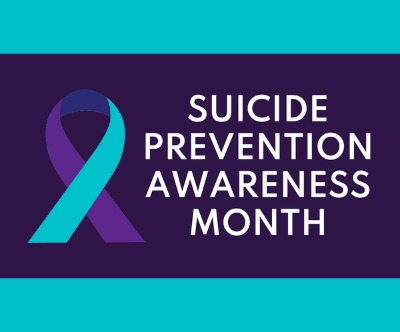 September is Suicide Awareness month. Many of us are unaware that suicide is the 2nd leading cause of death among individuals between the ages of 10 and 34 and was the 10th leading cause of death overall in the United States in 2019. Among high school students, 1 in 5 has seriously thought about suicide, and nearly 9% have attempted. Four out of five teens who attempted suicide have given clear warning signs. These statistics are scary, but there is hope! We can prevent this tragedy by identifying and supporting young people who are struggling with mental health symptoms, including thinking about suicide. Some individuals and communities are more at risk than others, including people of color, indigenous peoples, and the LGBTQ+ community. Creating a caring community lets those in need know that they are not alone and that there is hope. Remember, silence hurts us all. 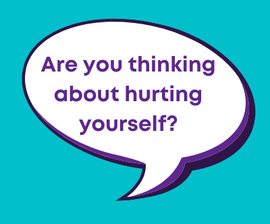 It has been proven that asking the tough question, "Are you thinking of hurting yourself?" does NOT lead to suicidal tendencies. In fact, it can reduce ideations and attempts. We should encourage everyone to become comfortable talking about suicide and make sure to check on friends and loved ones. The more we talk about it and provide support and understanding, the more lives we can save. If you suspect someone is struggling, ask them or tell someone who is in a position to help. Don't be afraid to reach out to the parents of your child's friends or the student’s school counselor about their struggles or warning signs you see. This could save a child’s life! Kids need to learn how to spot signs in their friends, too, and feel impowered to speak up when necessary. If your student needs advice or assistance, their school counselor is always a good place to start. 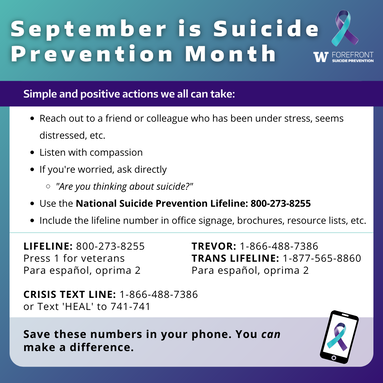 Signs to Look For & Steps to Take There are quite a few things that have been associated with increased risk for suicide. It is important to be aware of these signs: • Prior suicide attempts • Family history of suicide • History of mental health conditions • Substance misuse • Impulsivity or aggressiveness • Serious family problems • Breakups or other major relationship losses • Access to means for self-harm • Social isolation • History of traumatic experiences There are also several things that might indicate that the person’s thoughts of suicide are escalating or that there is more acute risk, including: • Talking, joking, or posting online about dying or life not being worth living • Feelings of hopelessness, shame or of being a burden to others • Extreme sadness, anger, or irritability • Planning or researching ways to die • Withdrawal from others, saying or posting “goodbye” messages, giving away possessions • Erratic or disorganized behavior • Seeking means to self-harm If you have observed any of these signs or risk factors, and are concerned about someone, here's 5 steps you can take: ► Start by offering compassion (not advice), avoid judgment, acknowledge their suffering, and just listen. ► After that, ask them if they are thinking of suicide. Be calm and direct. Asking will NOT put the idea into their mind. ► If you are confident that they are not in immediate danger, and they have a mental health treatment provider, contact them for next steps. If they do not have a mental health provider, contact the person's primary doctor or pediatrician. ► If you feel their life, or someone else’s life is in danger, then take away all objects that could pose a danger (medications, firearms, knives, ropes, chemicals). ► Next, call the National Suicide Prevention Lifeline or any other resource listed. Call 9-1-1 in an emergency or last resort. Let the operator know that this is a mental health crisis. Additional Resources & Helpful Websites
This article was brought to you by Northshore Council PTSA's Mental Health Committee.
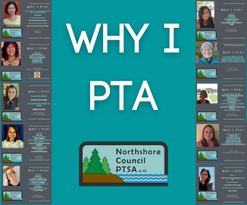 Every year PTAs start their membership campaign and every year families ask the same question: "Why join the PTA?" After over a year of being at home, many families may feel discounted and be asking why they should support PTA. It can be hard to communicate your PTA's value with programs being offered virtually when families are used to attending PTA events in person or seeing the support your PTA does in the classroom. That's why it's more important than ever to answer the question "Why PTA?" One great way of doing that is sharing with your families the reason why you support the PTA. Knowing WHY those leading your PTA serve is a great way to inspire other families to support your PTA by joining or donating. Check out all the reasons that inspire your Northshore Council Leaders to PTA below! Interested in making your own "Why I PTA" slides but need help? Contact Council's Co-VP of Membership, Melissa Kline.  PTAs are often the target of scammers. It's important for PTA officers to know the red flags to look out for to help keep your PTA safe. Scam Emails Some scams may spoof the email of another officer to help make the request look legitimate. But there are things to check for before you reply:
Common Scams
Protecting Your PTA There are a few things you and your board should be doing in order to protect your PTA:
Money Handling Policy Does your PTA have a money handling policy? Has your PTA updated their policy to include online banking? Money handling policies are important to have so that it is very clear how your members and board are handling the funds of the PTA. Having these policies written out, communicated, and followed helps safeguard your PTA from scammers, and mishandled money. They should include how you handle your cash, checks, deposits, withdrawals, any online money access, and more. Need some help putting your money handling policies together or updating them? Council recently updated their own money handling policies, and it is available for you to use as a sample. Still have questions? Contact Council Treasurer, Serena Xu. Remember: There is nothing more urgent for your PTA than to follow best practices and policies to ensure you don't get caught in a scam!  We are living through a difficult moment in history and it is natural to feel anxious. For most, the uncertainty surrounding a worldwide pandemic is the hardest to handle, and it's easy for anxiety to build and run rampant much like a virus. Many adults have been providing emotional support to others for a while now, and this level of support can deplete our resources quickly. It’s important to realize that some of the anxiety that kids are experiencing may be inadvertently passed on by the worried adults in their life. Dealing with our own anxiety can be the most powerful way to make sure our kids feel secure. It’s critical to understand and monitor our own mental health temperature, especially if we want to help those around us. We can't share with others a resource that we lack ourselves. If we don't prioritize taking care of ourselves, and continue to ignore the fatigue, headaches, insomnia, irritability, or worrisome thoughts... eventually our bodies find new ways to tell us to stop. What can we do? Begin with self-care and establish a routine around it. Routines that involve mindfulness, exercise, regular meals, and healthy amounts of sleep are crucial to regulating our moods and our worries. Additionally, activities such as spending time in nature, reading for pleasure, talking with people we care about, listening to music that makes us happy, or even scheduling time to do nothing, can help to support ourselves daily. By focusing on just one small thing that we can do right now, it can often provide the peace of mind that we seek in these uncertain and unstructured times. We can't control the future, but we can take charge of the present. Additional Self-Care & Coping Tools Resources:
If you have noticed these behaviors in your child, especially if they are a change from your child's baseline behaviors, they could be suffering from anxiety.
What does anxiety look like in children? Anxiety can feel overwhelming to your child and to you. Children with anxiety manifest their fears in many different ways. Some act out becoming angry, aggressive, and defiant. Some withdraw, becoming disinterested in activities and family outings that used to give them pleasure. Parents often describe an anxious child as "not themselves", "overly worried" or "overly angry at the smallest thing". If this sounds like your child, know that anxiety is very common among adolescents and children and it is highly treatable. What can you do to help your child with anxiety?
Be a part of Northshore Council's newest committees! We are searching for members to be a part of two new committees; one on Equity and the other on Mental Health. Read more about each of these new committees below and find out how you can get involved!
Every year PTAs start their membership campaign and every year families ask the same question: "Why join the PTA?" This year especially, families may be asking why they should support PTA. It can be hard to communicate your PTA's value now that everything is online when families are used to attending PTA events or seeing the support your PTA does in the classroom. That's why it's more important than ever to answer the question "Why PTA?" One great way of doing that is sharing with your families the reason why you support the PTA. Knowing WHY those leading your PTA serve is a great way to inspire other families to support your PTA by joining or donating. Check out all the reasons that inspire your Northshore Council Leaders to PTA below! Interested in making your own "Why I PTA" slides? Contact Council's VP of Membership, Melissa Kline, for help on how to. |
�
Archives
April 2024
Categories
All
|

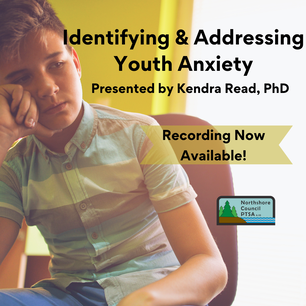
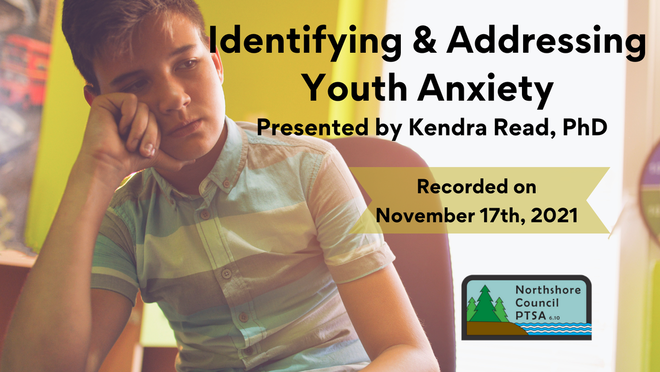
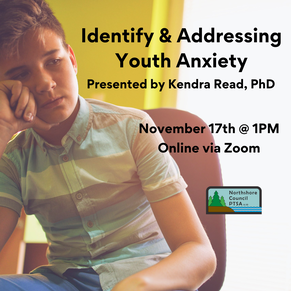
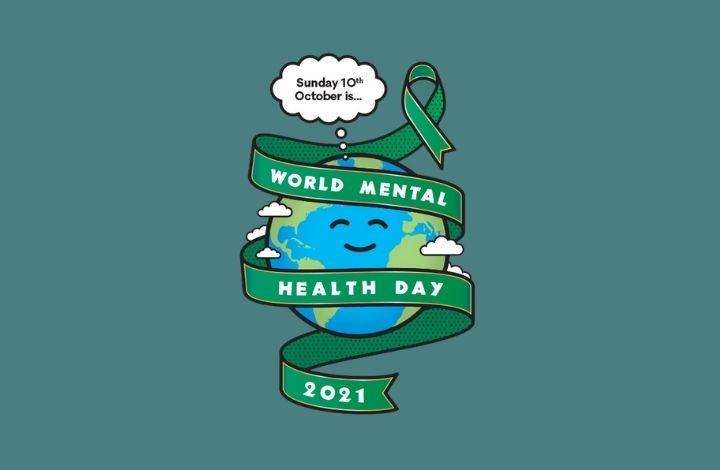
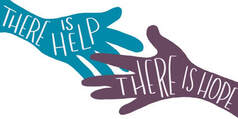
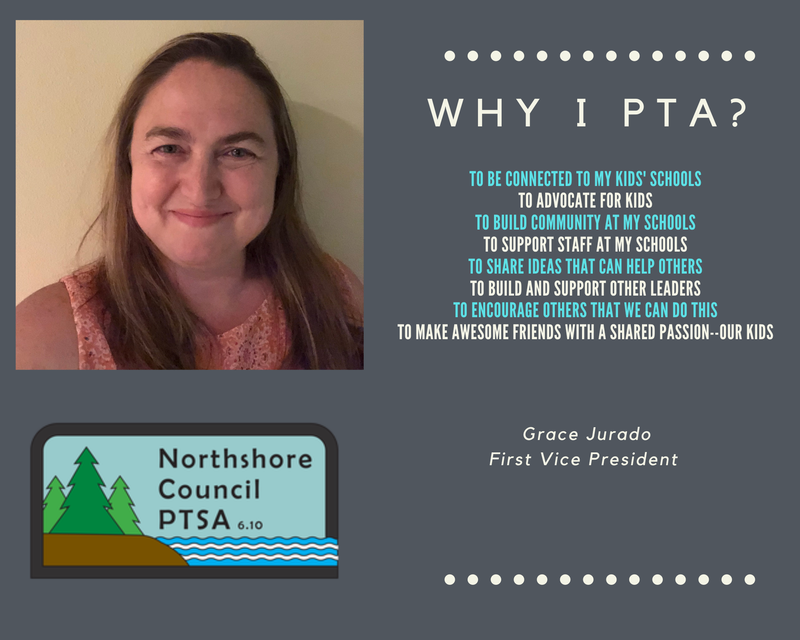
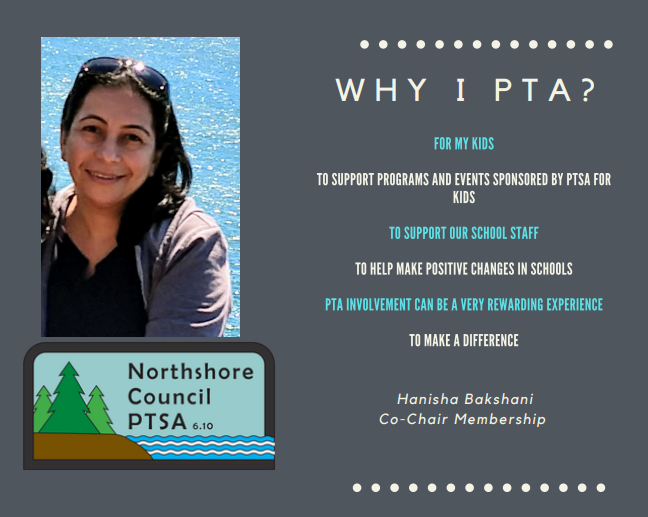
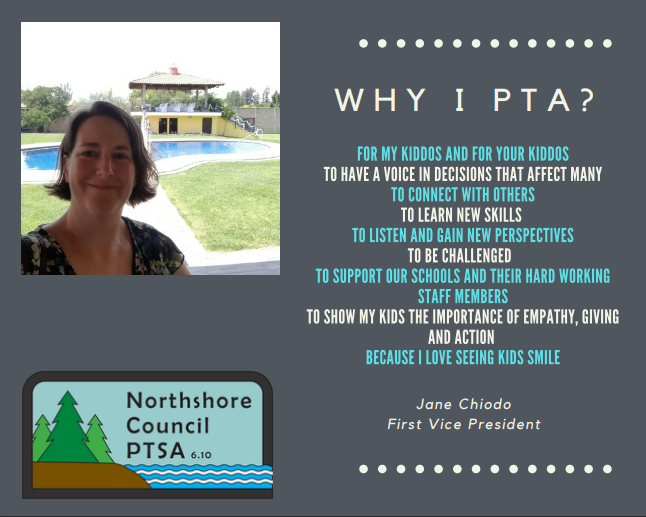
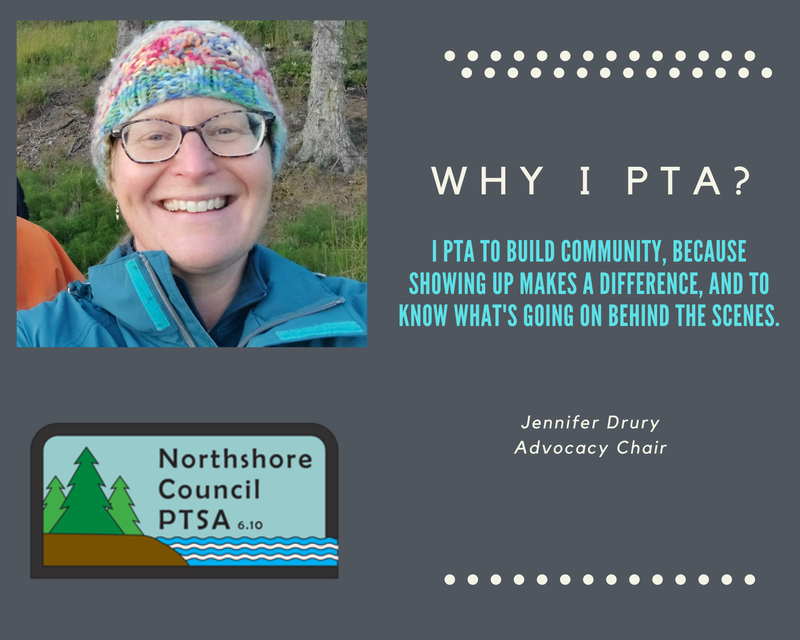
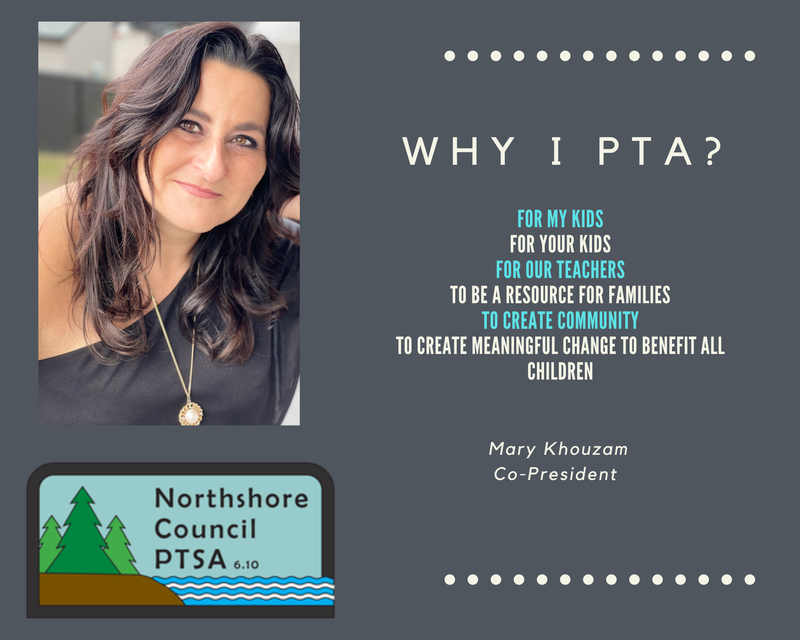
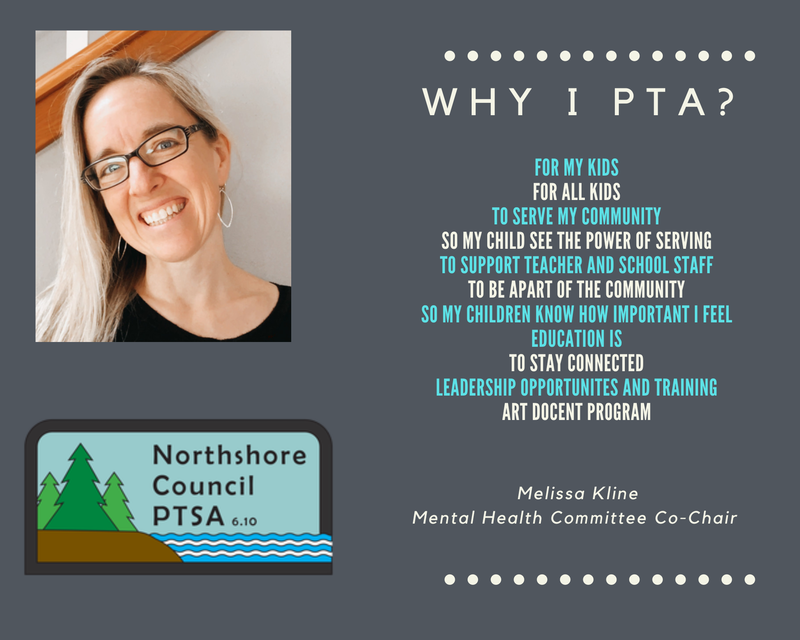
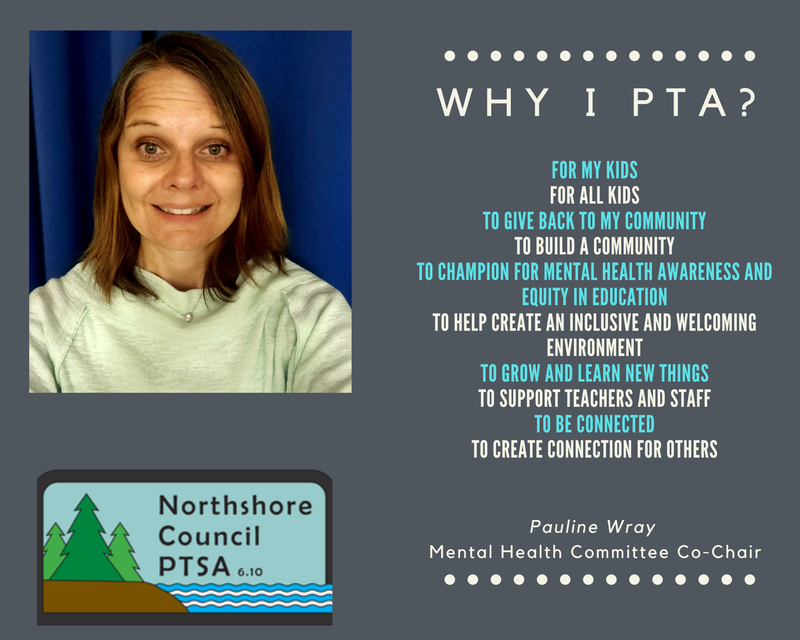
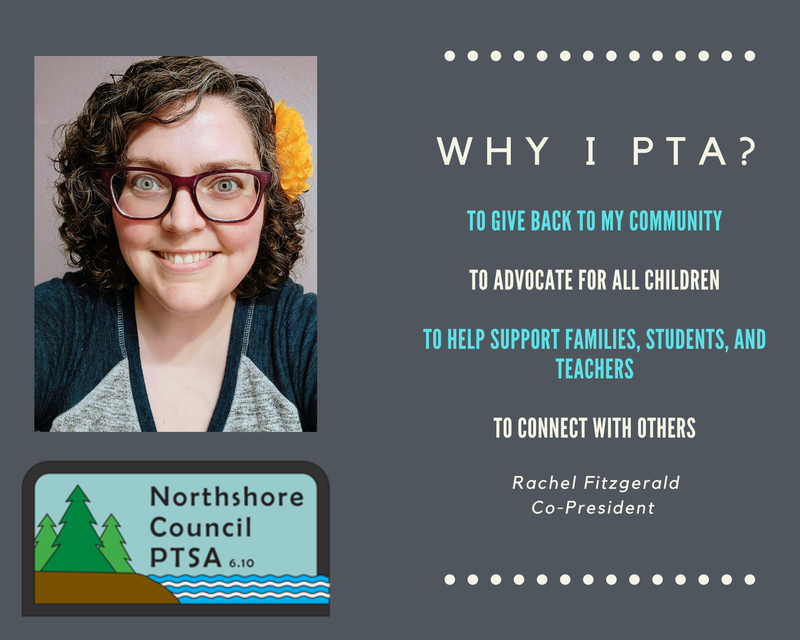
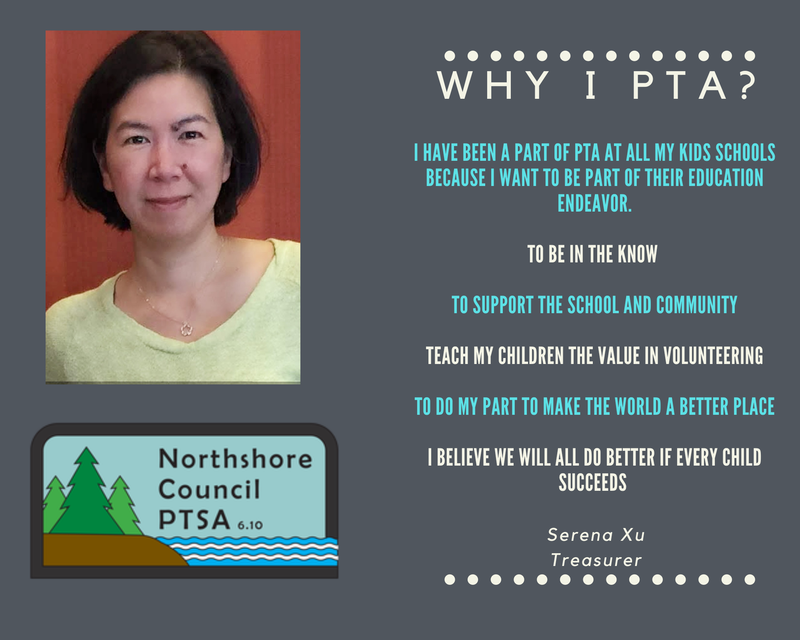
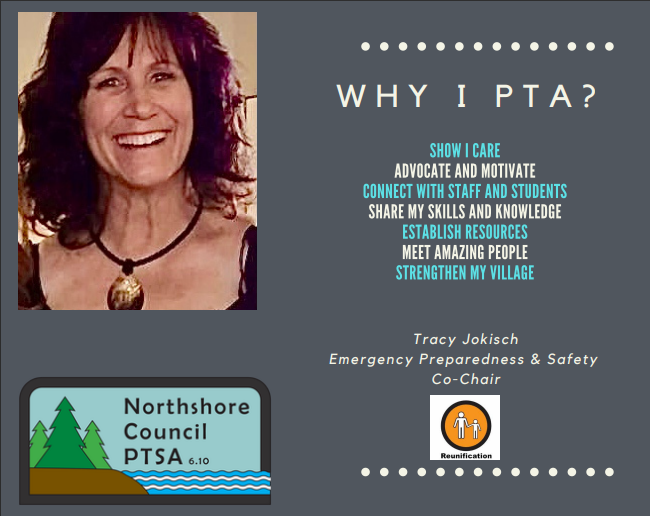
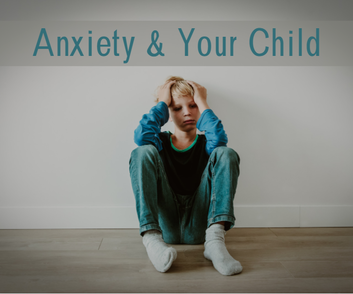


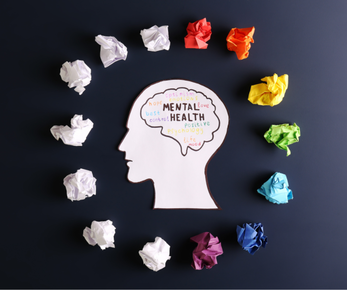
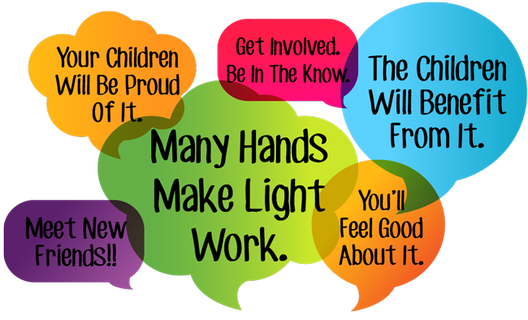
 RSS Feed
RSS Feed